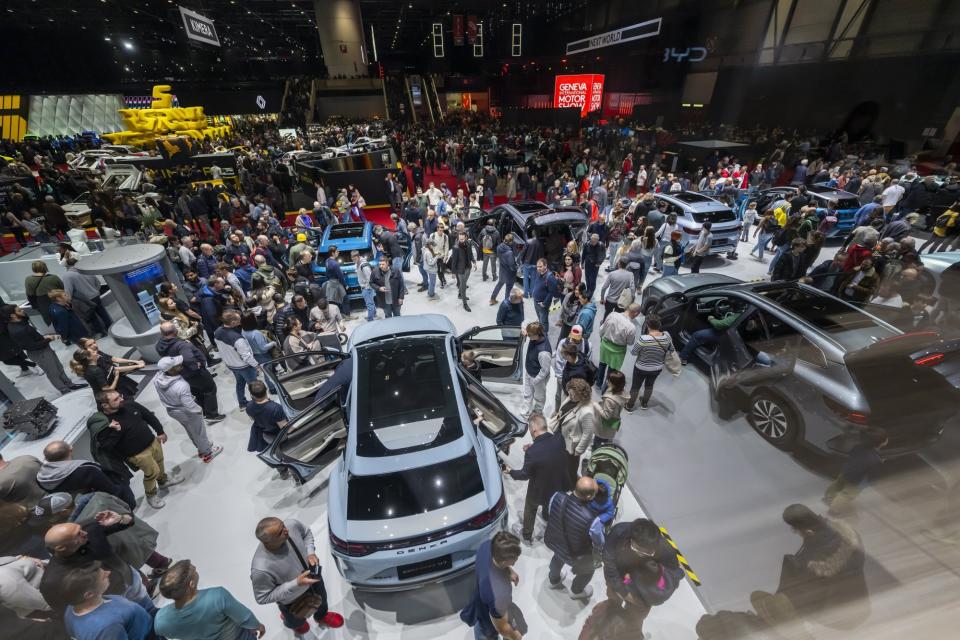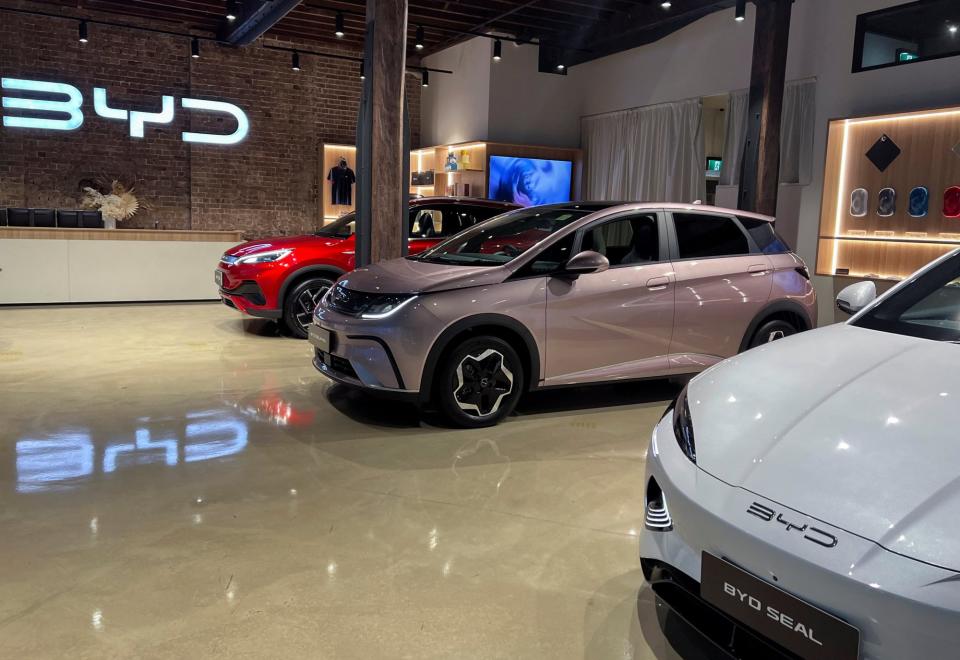China's BYD to spend US$55 million on buy-back of Shenzhen-listed shares as world's largest EV maker eyes higher market value
BYD, the world's largest electric vehicle (EV) maker, plans to buy back 400 million yuan (US$55.56 million) worth of its mainland-listed shares, with the aim of lifting the company's stock price amid concerns about escalating competition in China.
Shenzhen-based BYD, backed by Warren Buffett's Berkshire Hathaway, will tap its own cash reserves to repurchase at least 1.48 million yuan-denominated A shares, or about 0.05 per cent of its total, before cancelling them, according to the company's announcement after the market close on Wednesday.
A buy-back and cancellation leads to a smaller volume of total shares in the market, which translates to a rise in earnings per share.
Do you have questions about the biggest topics and trends from around the world? Get the answers with SCMP Knowledge, our new platform of curated content with explainers, FAQs, analyses and infographics brought to you by our award-winning team.
The proposed share repurchase seeks to "safeguard the interests of all shareholders, shore up investor confidence, and stabilise and enhance' the company's value, BYD said in a filing to the Hong Kong and Shenzhen stock exchanges.

Visitors gather at BYD's booth during the last day of the 91st Geneva International Motor Show in Geneva, Switzerland, on March 3, 2024. The motor show opened on February 27. Photo: EPA-EFE alt=Visitors gather at BYD's booth during the last day of the 91st Geneva International Motor Show in Geneva, Switzerland, on March 3, 2024. The motor show opened on February 27. Photo: EPA-EFE>
BYD intends to spend no more than 270 yuan per share under its buy-back plan, which is subject to approval by the company's shareholders. The share repurchase scheme is expected to be completed within 12 months of its approval.
The company's Shenzhen-listed shares added 4 per cent to close at 191.65 yuan on Wednesday, while its shares in Hong Kong gained 0.9 per cent to HK$192.90 (US$24.66).
The share buy-back plan, which BYD founder, chairman and president Wang Chuanfu, proposed two weeks ago, reflects the continued efforts by major Chinese companies to boost their stocks, as China's post-pandemic economic recovery remained shaky and after the most aggressive interest-rate rise in the US for four decades triggered capital outflows.
In an exchange filing on February 25, BYD said that it received a letter from Wang on February 22 that suggested a 400-million-yuan share buy-back, which is twice the amount that the company originally planned to spend for the repurchase.
Wang's proposal, however, failed to spur a rally in its stock, which has been battered by worries over a slowing Chinese EV market.
BYD delivered a record 3.02 million pure electric and plug-in hybrid vehicles to customers at home and abroad in 2023, a 62.3 per cent year-on-year increase.
At the end of January, BYD said in an exchange filing that its net profit for last year would be between 29 billion yuan and 31 billion yuan, up 74.5 per cent to 86.5 per cent from 2022.
Berkshire Hathaway held 7.98 per cent of BYD stock on October 25 after trimming its previous 8.05 per cent stake in the EV maker's Hong Kong-listed shares, according to a stock exchange filing.
BYD dethroned Tesla in 2022 as the world's largest EV producer, a category that includes plug-in hybrid cars.
The company beat the US carmaker in terms of sales of pure electric cars last year, buoyed by Chinese consumers' increasing penchant for battery-powered vehicles.
Most of BYD's cars were sold on the mainland, with 242,765 units - or 8 per cent of its total deliveries - exported to overseas markets.
Tesla delivered 1.82 million fully electric cars worldwide, up 37 per cent year on year.

BYD's Atto 3 electric sports utility vehicle and Dolphin hatchback are seen on display at the company's Experience Centre in Darlinghurst, a suburb of Sydney in Australia, on February 19, 2024. Photo: Reuters alt=BYD's Atto 3 electric sports utility vehicle and Dolphin hatchback are seen on display at the company's Experience Centre in Darlinghurst, a suburb of Sydney in Australia, on February 19, 2024. Photo: Reuters>
Since mid-February, BYD has been cutting prices on nearly all of its cars to stay ahead of competition.
On Wednesday, BYD launched the basic version of the revamped Seagull at a price 5.4 per cent lower than the outgoing model at 69,800 yuan.
That was preceded by an 11.8 per cent cut in the starting price of its Yuan Plus crossover vehicle to 119,800 yuan on Monday.
This article originally appeared in the South China Morning Post (SCMP), the most authoritative voice reporting on China and Asia for more than a century. For more SCMP stories, please explore the SCMP app or visit the SCMP's Facebook and Twitter pages. Copyright © 2024 South China Morning Post Publishers Ltd. All rights reserved.
Copyright (c) 2024. South China Morning Post Publishers Ltd. All rights reserved.

 Yahoo Finance
Yahoo Finance 